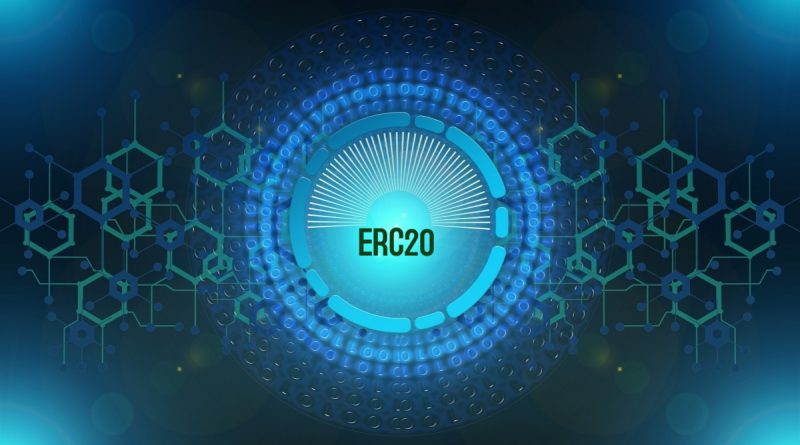ERC20: What does it mean in the Blockchain Space?
Snapshot:
- What is a Smart Contract?
- What is ERC20?
- ERC20 Standard: The Defined Functions?
- Ethereum Dapps and their benefits.
The complexity of the blockchain space is such that even the technology experts find it difficult to comprehend. The cryptocurrencies and other projects that are being developed on these blockchains have the power to revolutionize the whole world and thus many new retail as well as institutional investors are willing to go deep into these unchartered territories of crypto space.
There are now thousands of such cryptocurrencies and tokens being developed upon different blockchains and before investing into any such cryptocurrencies, it is very important to understand the underlying technicalities of each be it bitcoin, ethereum, litecoin etc. One of the most important aspects of these currencies is the decentralization and a smart contract is one of the most important technological innovations that ensure decentralization.
The ERC20 is a scripting standard for the ethereum blockchain that helps in implementing the smart contract functionalities.
What is a Smart Contract?
A smart contract is a contract that is self-executing in nature and can be made valid using some lines of code that will help in executing the contract at a specific time and at a specific situation or according to the terms agreed between the sellers and buyers. The decentralized blockchain is the repository for these contracts as well as the lines of code and is responsible for tracking and execution of these codes.
What is ERC20?
All the smart contracts being executed on the Ethereum Blockchain requires the technical standards as defined in the ERC20 Token for execution. Thus, ERC20 token is the most important token in the Ethereum blockchain that defines the rules for every token on the Ethereum blockchain.
ERC20 tokens are quite similar to other cryptocurrencies such as bitcoin, litecoin, ether etc, but the only difference is that they do not run on their own blockchain, but on the ethereum blockchain network. These tokens have certain value that can be traded for.
Various investors are confused between the Ether (ETH) and ERC20 token and think of it as the same entity. But, both are completely different fundamentally. Ether on one hand is the native token of the ethereum blockchain whereas ERC20 is the set of standards that can be used to create new tokens similar to Ether on the ethereum blockchain.
The ERC20 token lays down specific standards for fungible tokens only and thus the tokens created using these standards can only be exchanged with one another.
ERC20 standard: the Defined Functions
Below are the rules defined in the ERC20 standard that defines the functionality of different tokens developed on the ethereum blockchain:
- Total Supply: The function defined to display the information about the total supply of the tokens.
- BalanceOf: The function defined to show the balance of the owner’s account.
- Transfer: The function defined for the transfer of specific amount of tokens to a specific address.
- TransferFrom: The function defined for the transfer of specific amount of tokens from a specific address.
- Approve: The function defined to approve the withdrawal of certain number of tokens from a specified account.
Ethereum Dapps and their Benefits
Decentralized applications (DApps) are the digital applications that exist and run on a blockchain network. These application falls under the control of no authority thus making them decentralized and interference free. The Dapps built and existing on the ethereum blockchain are called the Ethereum DApps.
There are numerous benefits of DApp development:
- Privacy: Complete privacy is maintained while using the Dapps as there is no control or authority of anyone on these apps.
- Data Integrity: Data once published on the blockchain cannot be tampered with and thus maintains the integrity of the data. This helps in preventing any malicious atttacks on these blockchains.
- Trustless ecosystem: The use of smart contracts in the Dapps ensures that contracts are executed in predictable ways and as defined in the smart contract codes without the need of a middleman or approving authority removing the factor of trusting a third party completely.
- Prevents Censorships: Due to their decentralized nature, Dapps are not controlled by any entity and thus no entity can block users from executing transactions, reading data and perform other tasks using these Dapps.
The Final Takeaway
ERC20 being the most used standard for the development of the Decentralized Applications ensures that its future is bright. Backed by the huge clientage of the Ethereum blockchain, ERC20 is used in execution of the smart contracts in various apps and use cases such as crowdfunding and voting rights etc.
Though there are certain limitations (execution delays during peak ethereum transactions) that are limiting the adoption of ERC20 standards and with the constant improvement to the standards these limitations can be removed. All the ERC20 backed tokens are seeing spike in price and value in recent times showing the capability and future of ERC20 tokens.
Disclaimer: The article should not be considered as any financial advice. It is advisable to conduct thorough research before investmenting.
Photo by – 33cryptonews

